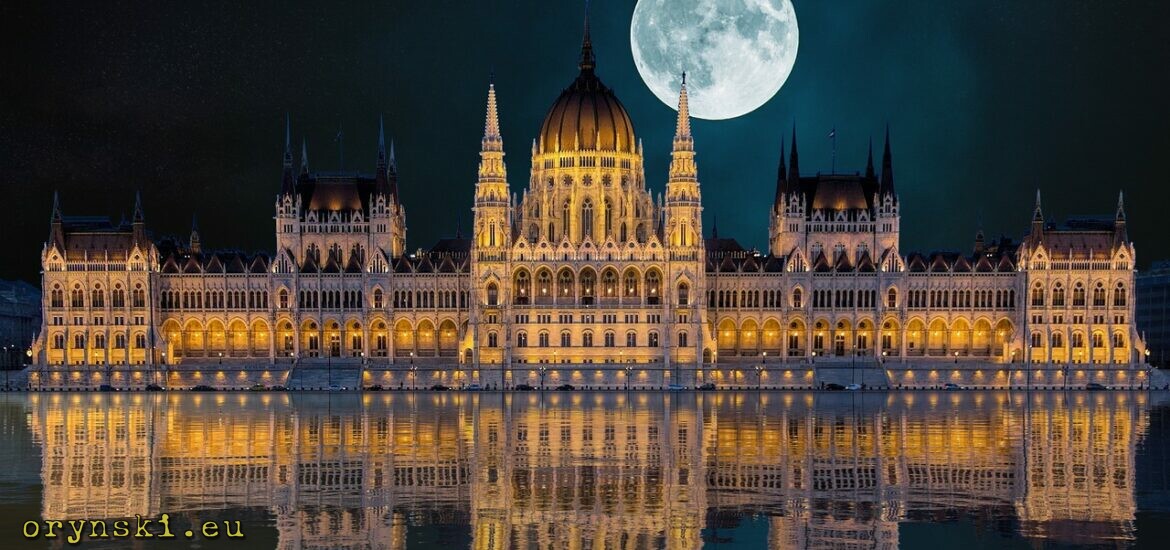The year 2024 is nearly over. I am not writing as much of my Absurdistan columns because, frankly speaking, Polish politics got really boring and predictable now, at least for the people who, like me, didn’t expect too much from Donald Tusk’s led coalition. But as some of the readers reached out to me to ask if I have something to say, this is my insight into the newest developments.
Click HERE to read the previous part of the series
Click HERE to see all the chapters of the series so far.
The bottom line is that not much is going on compared to the last decade. Life goes on slowly and there is still no sign of any progressive changes happening. The discussion on women’s rights had been sidetracked along with that about the rights of LGBT people. It will now be shunted – to remain within the same allegory – into an overgrown siding, where it will join old rusty cars containing stuff like worker’s rights, increase of spending on education and research or much-needed reforms of the health service. Although no, wait, there was some talk about the latter: Ryszard Petru, an economist from Szymon Hołownia’s Polska 2050 party was pushing for reducing the health insurance contributions for entrepreneurs. This went through, causing a big hole in the funding of the Polish health service, but Petru is still not happy, complaining that while the vast majority of entrepreneurs will be better off, some 130,000 will still pay more.
But while entrepreneurs can be sure their voice will be heard in the government – thanks to people like Petru – things are not going well for ordinary workers. The Left hoped to strengthen the State Labour Inspection (its officers are underpaid, overworked and the fines they can impose are laughably small) or at least introduce a new law protecting whistleblowers but to no avail. To keep them shut, their liberal coalition partners threw them some scraps – like making Christmas Eve a day off for retail workers, so they could brag about being successful to their voters. It annoyed Ryszard Petru, who even announced he himself would be working on Christmas Eve as the tills in one of Warsaw’s supermarkets to show it is not bad. Because as we know from numerous examples of right-wing politicians who did it before, if a rich politician cosplays as a person who does honest work for a day and survives it means, that this job is not as bad, and also, that he is one of us. But apparently even left-wing voters are failing to recognize this as a great victory of the Left, as seen in the comments at the social media pages of the Lewica politicians. It had been also pointed out by many that announcing with fanfare that shop assistants (most of whom are female) will not have to work on religious holidays so they can go home and cook Christmas food for their families, might not be as big leftist win as Lewica leaders think.
All that ended up in a crack in the parliamentary club of the Left. The young social-democratic party was sitting on the fence over the last year, formally supporting Donald Tusk’s led government but refusing to join his ruling coalition. They argued that by joining the coalition, Lewica legitimizes Donald Tusk’s other actions, such as continuing human rights breaches at the Belarussian border, and is not getting anything of value in return. As seemingly their prediction proved to be true, they have announced they are now becoming an opposition party, which in turn brought a schism in their ranks, as 3 of their 7 MPs and both senators left the party in order to remain within the government coalition. This might mean the end of the significant Left on the Polish political scene, as Razem is considered by many to be a party that has the heart in the right place, but it is too hardly sticking to its principles. On the other hand, the other Left-wing parties will most likely dissolve in the much bigger Tusk lead Koalicja Obywatelska, just like the Green Party or Barbara Nowacka’s Inicjatywa Polska had lost their distinctive voice before.
Meanwhile, the main lights on the political scene are focused on the never-ending saga of bringing PiS politicians to justice. This story has many twists, with the prosecutors, anti-corruption bureau and parliamentary commissions running after PiS politicians from all sides. Kaczyński is trying to keep up the brave face, but it is clear that PiS and its satellites (Zbigniew Ziobro’s party Solidarna Polska seems to have most reasons to be worried) are running for their lives. And to the amusement of everyone, they seem to be falling into their own traps, like when the State Electoral Commission rejected their financial report arguing, that by using government money to promote their candidates they broke the financial regime of the electoral campaign. As a result, PiS had their government subventions revoked for three years. They, of course, appealed that, but as the High Court Chamber they appealed to is full of illegally elected judges, the State Electoral Commission said “Ok, we’ll do it, as soon as this chamber will be brought into order by the constitutional bodies of the state” – which, as long as the Constitutional Tribunal remains an irrelevant institution when Kaczyński’s puppets announce their ruling nobody – even PiS – really cares about any more, it de facto means the case was put on ice indefinitely.
But now all the eyes are turned at Budapest where Marcin Romanowski, a PiS MP and former deputy justice minister wanted for embezzling money from the Justice Fund (a recurring topic of this series, see here for most recent developments) suddenly emerged in Hungary, where he was granted a political asylum by the Victor Orban’s regime. This might complicate things a bit, as while other PiS cronies have already been deported from the places they ran away to (like Paweł Szopa, a producer of “patriotic clothing” that embezzled millions thanks to his close contacts with PiS politicians, who just had been extradited from the Dominican Republic) or are considered a lost case (as there is no chance that judge Szmydt, who ran away to Belarus, will be brought in front of the court anytime soon), but when another EU state is helping to hide criminals from the Polish justice system, that can have bigger, international repercussions. And I am guessing this is not the last time we’ll hear about Orban protecting his friends from PiS – former Orlen CEO Daniel Obajtek has been already hiding in Budapest before he was able to hide behind an MEP immunity.
This is a hot topic in Poland now, and everyone has an opinion about it. Some are outraged at the PiS’s blatant attempts to evade justice. Others believe PiS’s narration that Donald Tusk and his government are persecuting the opposition. The only person in Poland who seems to have nothing to say is Karol Nawrocki. “On the matter of Romanowski’s case, I have no opinion whatsoever” – he said. But, wait. Who is that Karol Nawrocki, you might want to ask?
And rightly so, as until very recently not many people in Poland knew him too. But now he is PiS’s candidate in a future presidential campaign. After a long period of speculations, it turned out that Kaczyński decided against giving that fight to any of the main players – probably because not only most of them are already hated by many Poles (and may also soon face criminal charges), but also because of tensions within PiS that seems to be a battlefield of warring fractions. Choosing someone from the third row seemed to be a safe bet – after all, it worked out well with Andrzej Duda. And if he gets burned (the other side already dugged up his connections to extreme right), there is still plenty of time to make a switch.
Yes, there is still plenty of time, because the campaign has not started officially yet. The first one to announce his candidacy was Sławomir Mentzen from the far right Konfederacja – which was met with criticism from everyone from left to just left of Konfederacja (there is nothing to the right of them really) as an attempt to circumvent spending limits that exist in the campaign period. But suddenly, when PiS does the same with Nawrocki and PO with Warsaw’s mayor Trzaskowski (who has beaten Radek Sikorski in the party’s internal plebiscite), suddenly starting the presidential campaign before it had been officially announced seems to be perfectly fine.
For the record, Lewica’s candidate will be Magdalena Biejat, until recently from the Razem party, who seems to be really unhappy with her job, as since being elected as deputy speaker of the Senate, she already stood in elections for Warsaw Mayor and Europarliament. And the fact that she failed in both of those suggests, that her voters might be equally fed up with her too, which is no surprise, seeing that she seems to have no intention whatsoever to do the job she had been elected by them in the first place. The inauguration of her pre-campaign (as it is now called in Poland) had been overshadowed by a scandal involving her party colleague, the Minister of Science, who had to give up his job after scandals involving nepotism (he forced a university to change its statute to make it possible to get a job to his wife) or releasing the name of the whistleblower to the person she had been accusing of wrongdoing.
And what is Donald Tusk doing in all of that? He seems to be much less visible than many expected. He retracted to the role of a wise father who sits behind the closed doors to his cabinet, doing his serious work, only having to step out sometimes to sort out the rowdy children or write a snarky comment on Twitter or Bluesky. When Tusk takes some actions personally, they turn out to be a populist reaction to some current crisis, like on the day I am writing this work, when he tried to use the terrorist assassination in Germany as an argument to demand that Andrzej Duda supports his anti-migration laws (which backfired spectacularly, as he clearly posted it before it emerged that the attacker was an anti-Islamic Musk and AfD supporter and one of the motifs behind his attack was that Germany does not offer ENOUGH protection to victims of persecutions from the Middle East…)
The fight with refugees seems to be the new obsession of Tusk’s government. After announcing they would revoke human rights by suspending the right to asylum altogether (see more here), the focus shifted to continuing construction of anti-immigrant infrastructure at the Belarusian border that had been set in motion in the debatable legal frame by PiS. In the recent development, all trees on the bank of River Bug had been chopped down “to improve visibility” for the cameras on the masts that are now being placed along the border. This had been strongly criticized both by environmentalists (as the legal frame provided by PiS had been used, the destruction happened also in the strictest nature reserves, which would be illegal under normal circumstances) and security specialists (who point out, that the whole operation makes no sense). And all that destruction on the whole 172 kilometres of the river banks is to prevent crossing on the section of the border where, according to the Border Guard, less than 400 people tried to cross last year. If each of them was given a villa with a pool, a Bentley and a comfortable salary for the rest of their lives, it would probably still be cheaper.
Hydrologists point out also, that the trees that have been cut down were playing a crucial part in strengthening the high river bank. Without them, they will erode quickly, causing the river stream to move west. As the river Bug at this segment constitutes the border between Poland and Belarus, it will mean that we are going to lose some land that Belarus will reclaim on their side after the river moves more towards our side. Some people were saying that Donald Tusk wants to get back to power just to give Poland away to our enemies, but I don’t think this is exactly what they were predicting…
This piece was written for Britské Listy
Picture from Budapest: Public Domain





